Paper 1 questions to memorise
1/27
There's no tags or description
Looks like no tags are added yet.
Name | Mastery | Learn | Test | Matching | Spaced | Call with Kai |
|---|
No analytics yet
Send a link to your students to track their progress
28 Terms
Describe what happens during each stage of the cell cycle:
Stage 1:
Stage 2:
Stage 3:
Stage 1: longest - chromosomes thicken and replicate
Stage 2 - chromosomes line up in middle and pulled to opposite sides of nucleus/ cell
Stage 3 - cytokinesis occurs and the cell splits into 2 genetically identical cells.
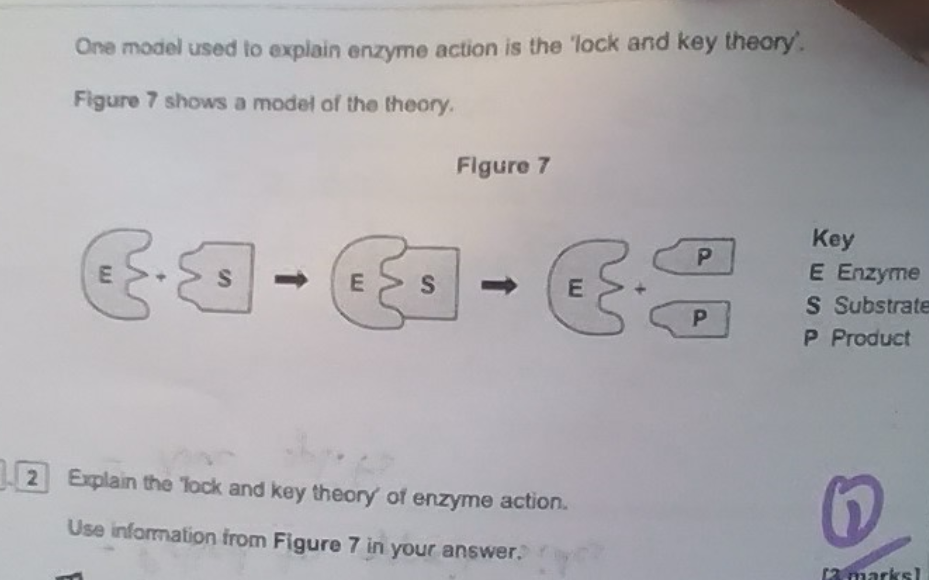
shows that the enzyme and substrate are complementary in shape to each other.
Shows substrate is broken down into products
Shows that the enzyme has not changed.
Describe how the students would find out if the liquid from the leaf contained glucose.
place liquids into separate test tubes labelling them.
add same volume of benedict’s solution to each
put in water above 65 degrees Celsius or above.
If turned brick red, it contains glucose.
Explain why the leaf left in a cupboard with no light for two days did contain glucose but did not contain starch.
The starch converted to glucose
As there was no light for photosynthesis to make more glucose.
What does a magnesium deficiency mean in plants?
causes insulin resistance so can’t take in glucose
Causes impairment in growth and discolouration.
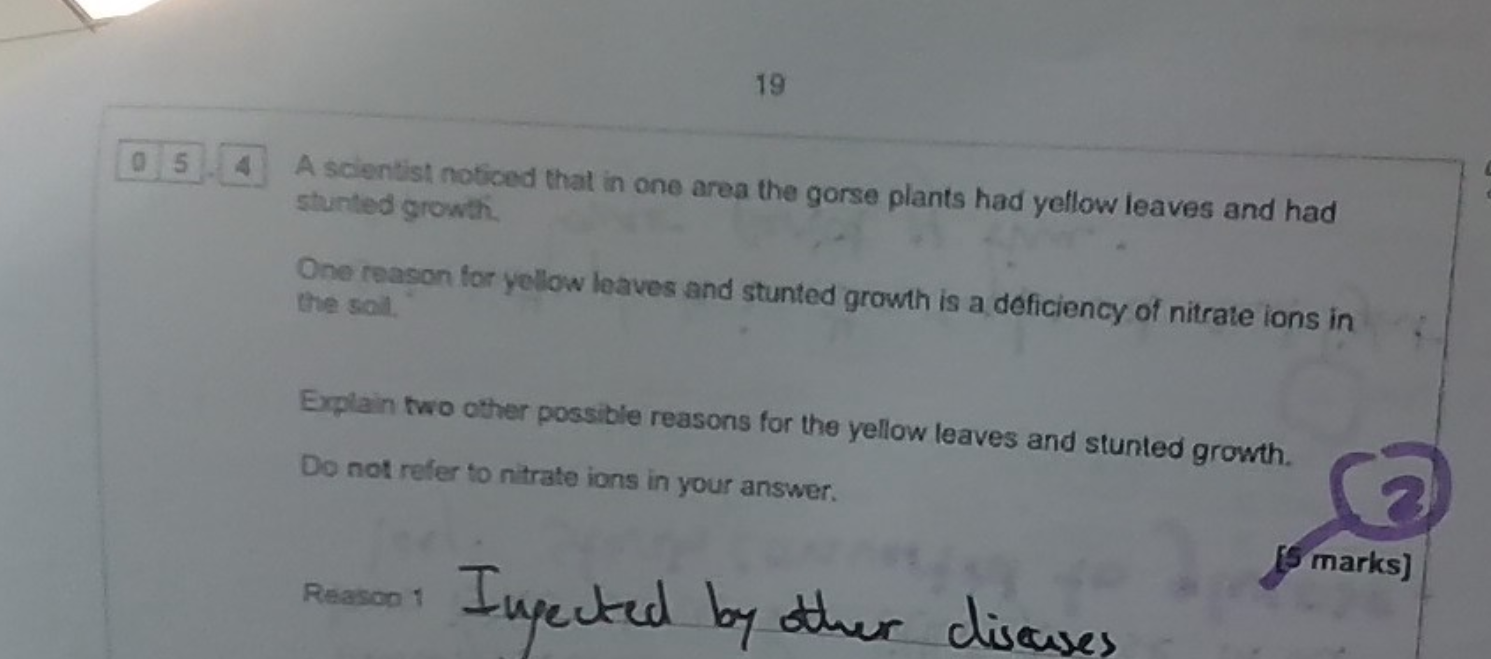
Presence of aphids
Infected by another disease
Lack of available light
Magnesium deficiency
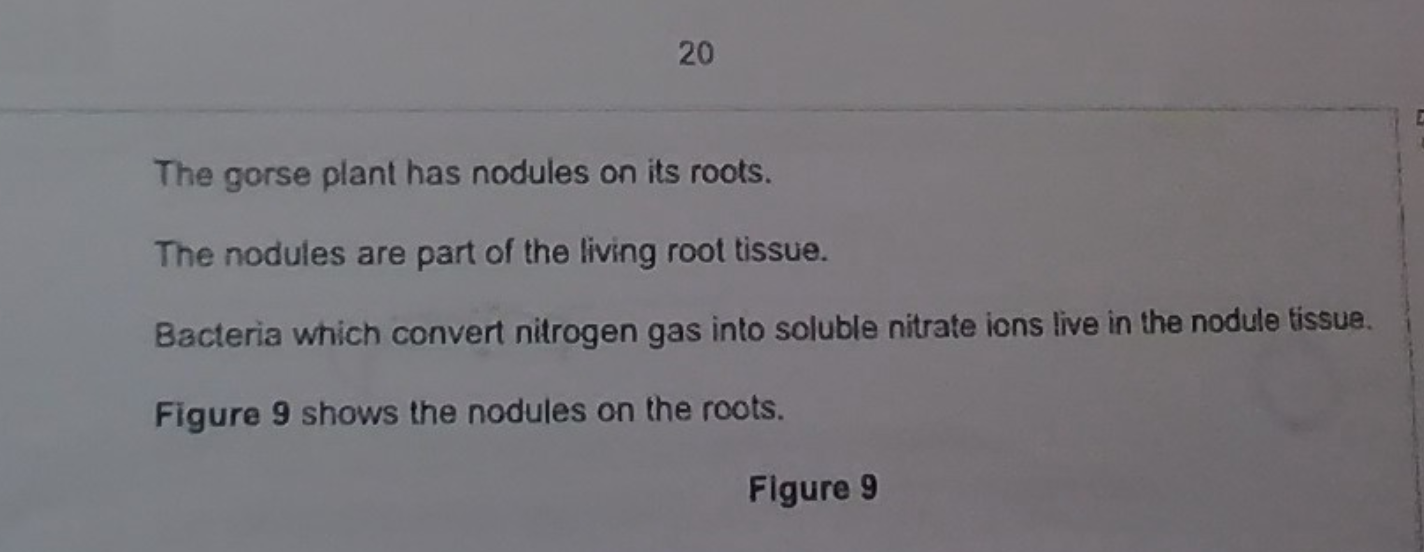
a. suggest how the nodules benefit the bacteria
provides glucose for respiration
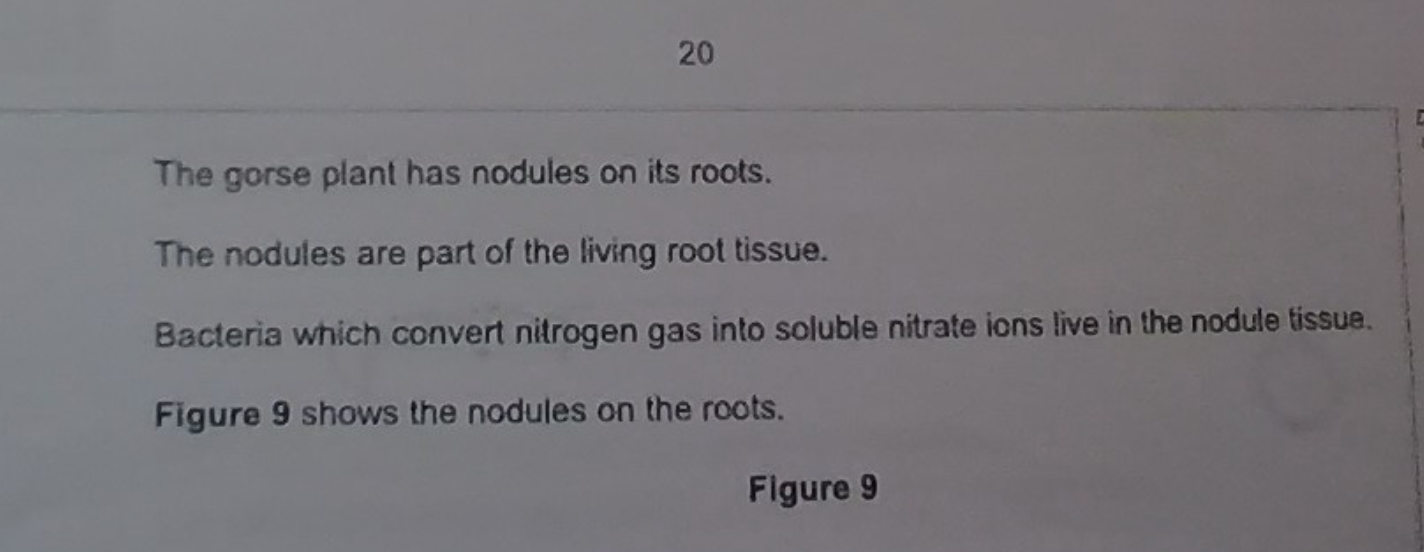
b. explain how the nodules benefit the gorse plant.
nodules provide nitrate ions which is needed to make amino acids in the plant.
Age and gender were two factors controlled.
many other factors were involved
suggest two other factors which the scientists would have controlled.
diet
smoking habits
medication
family history of (liver) disease
read all the info given for questions when suggesting why it is valid/ not valid.
read all the info given for questions when suggesting why it is valid/ not valid.
Describe the effects of liver failure on the body
fats may not be properly digested as there would be no bile to emulsify/ break it down.
Liver can no longer break down toxins like alcohol.
Glycogen stores may not be formed.
Protein/ amino acids may not be broken down and deaminated.
A person with AIDS may take longer than a healthy person to recover from a Salmonella infection.
Explain why - 2 marks
Immune system is damaged with AIDS due to the immunosuppressants in medication.
White blood cells can’t kill bacteria as effectively.
What measurement would the scientist need to take to calculate the area where no bacteria were growing?
radius/ diameter
Give one change to the experiment that would allow the scientists to check if the results are repeatable.
Repeat and look to see if results are similar.

Toxicity/ side effects
Effect on other types of pathogens
Ease of use
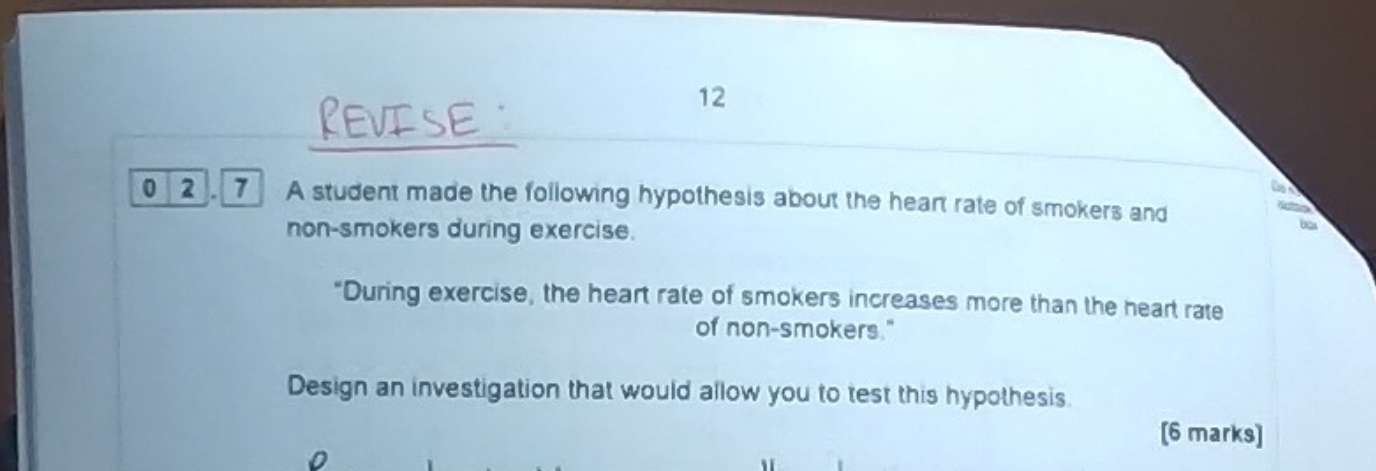
2 groups of people —> non-smokers and smokers
Have at least 5 people in each group
Get each person to perform a named excersise.
Control variables:
Same number of ppl in each group
same gender
same intesnity of excersise
same type of excersise
same age
Record heart rate for each person before and after excersise.
Calculate increase in heart rate for each person after excersise.
Compare results for each group

More haemoglobin
more oxygen is able to be transported per cm³
Cells can respire more for energy.
which two blood vessels carry deoxygenated blood?
Pulmonary artery
Vena Cava
where are pace makers fitted?
On the right atrium.
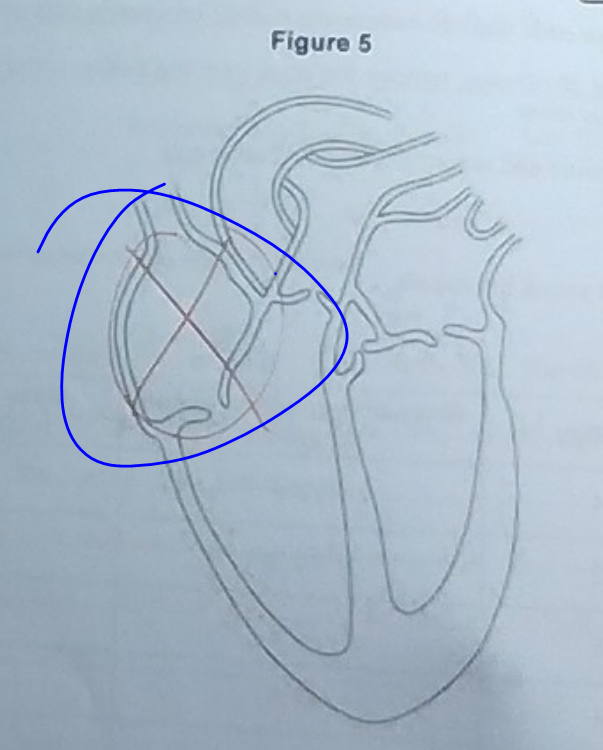
What condition may be treated with an artificial pacemaker?
Irregular heart beats
Eggs were placed into a beaker with water.
Explain why the masses of the eggs increased.
Water was able to move into the eggs by osmosis
From a high concentration of water molecules to a more lower concentration of water in the egg.
EXTRA:
may 2018, biology higher tier paper 1H.
Q. 4.4
getting that last mark for why magnesium deficiencies cause stunted growth.
therefore the plants makes less glucose and less glucose is converted into protein for growth —> stunted growth.
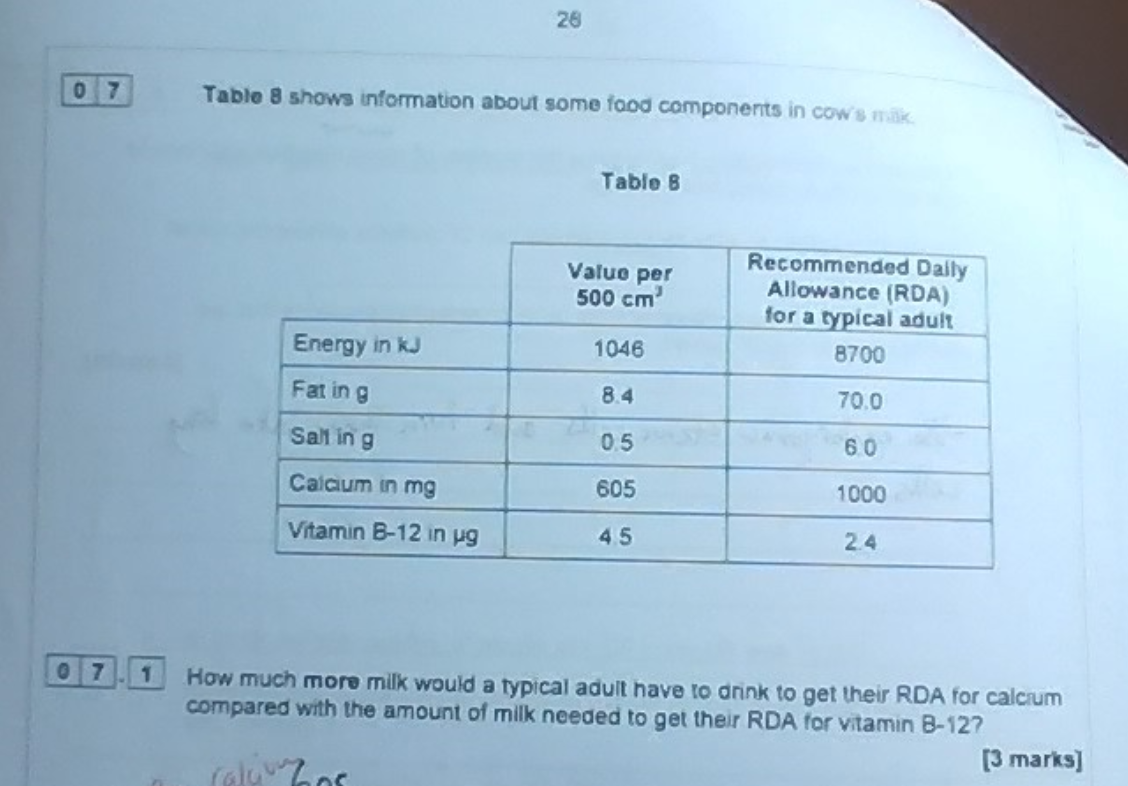
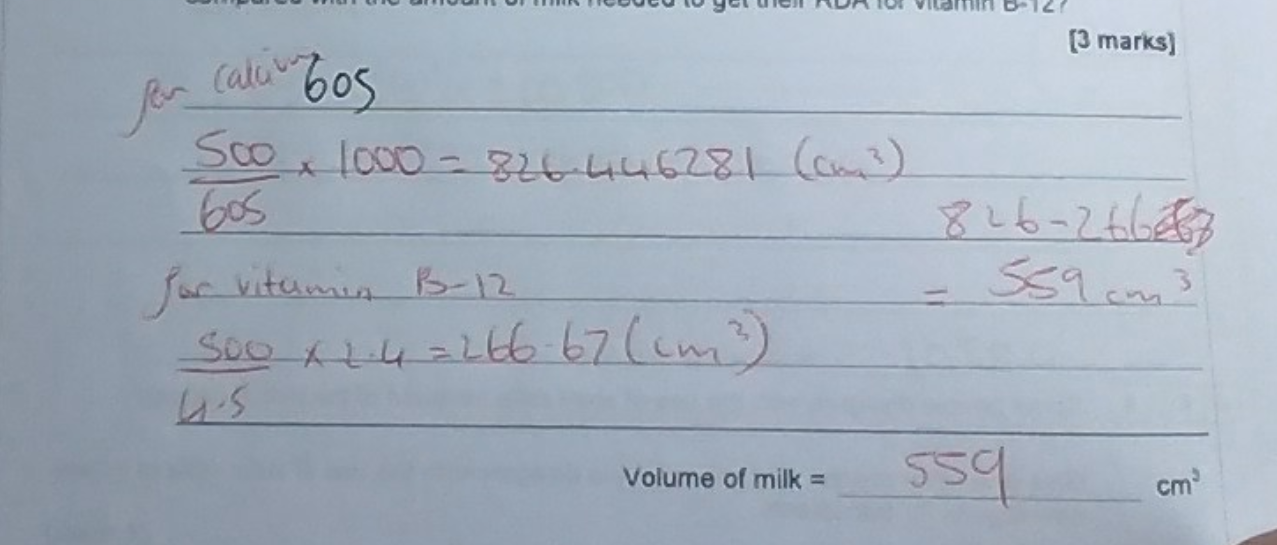
How to test for different carbohydrates:
Testing for sugars:
Benedict’s solution for sugars
ass benedict’s solution to milk and boil at a temperature above 60 degrees celcius.
Solution will turn brick red if sugars/ carbohydrates are present.
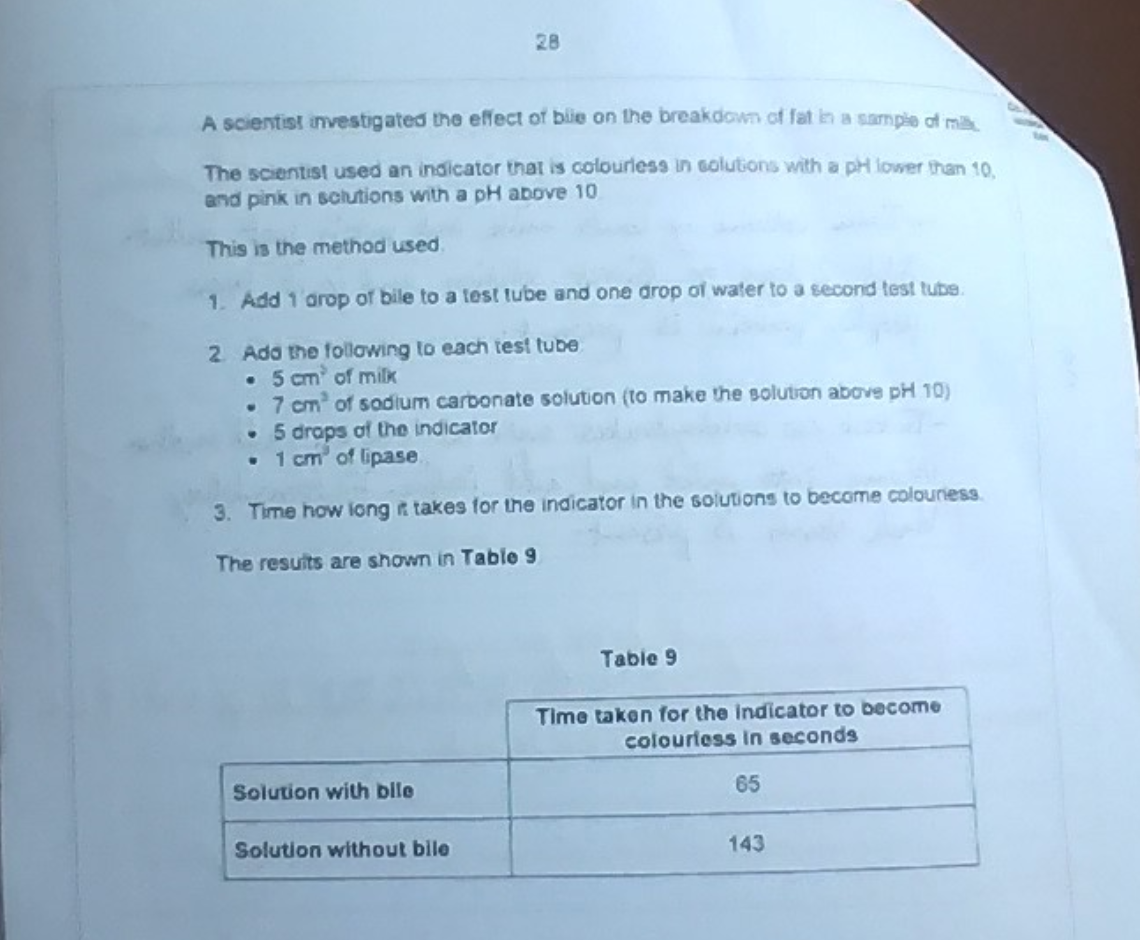
Explain why the indicator in both tubes became colourless.
Lipase breaks down fat into fatty acids in both testubes.
Fatty acids lower the pH
Fatty acids cause the pH to be below 10.
Give one reason why the measurement of time taken for the indicator to become colourless might be inaccurate
Observations of colour change are subjective.
Explain the difference in results for the last two test tubes in Table 9.
Bile emulsifies fats
Creates larger surface area
Therefore lipase can break down the fats more quickly.